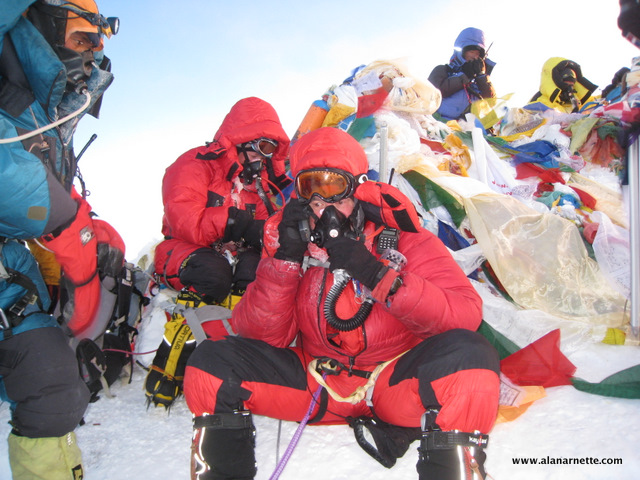In May, 2012 I warned readers of this blog that draconian new laws which had taken effect in America placed the traditional neutrality of explorers at risk.
“The American government,” I wrote, “has announced that it can arbitrarily define as a “terrorist” any doctor or nurse who aids a wounded human. In such cases a victim’s politics overrules his physical suffering.”
I then posed the question, “If doctors can now be classified as “terrorists” by the “land of the free” are explorers next?”
The article then went on to pose these pertinent questions.
What are the implications for explorers who wish to visit countries rocked by political instability, ie Afghanistan, Burma, Eritrea, Kashmir, Mali, Somalia, Syria, Tibet, Yemen, just to name a few?
Could a chance conversation between an explorer and a political activist result in statements being voiced which, being in opposition to official American foreign policy, carry an automatic condemnation for the traveller?
Could explorers become victims of political entrapment?
If an explorer is, by default, “caught” talking to people who are politically sympathetic to Al Qaeda, are the exploration organizations which support his journey also culpable of “supporting terrorism”?
I concluded by stating, “Members of the medical profession, as well as prominent advocates of civil liberties in the United States, are deeply concerned at the tremendous erosion of civil rights and basic liberties which political events have inspired.”
In the intervening months concerns about the on-going erosion of citizens’ basic rights, including the constitutionally protected right to privacy, have continued to dominate the headlines.
Newspapers have just revealed how the US government uses a secret intelligence programme called Prism to systematically intercept more than 1.7 billion messages a day from American citizens. Foreign governments, companies, universities and millions of overseas citizens are also believed to have had their privacy systematically invaded by the use of the Prism programme.
Dictators are not dumb. They read history books too. That’s why they know that there are a number of steps to be taken when one wants to assume total control; critical steps include declaring martial law, seizing control of the media, arresting opponents, spying on citizens and restricting travel.
A glance at Long Rider history will provide alarming examples of how tyrants crush travel, along with a citizen’s other rights.
Throughout history totalitarian regimes have realized that horses presented a potent political threat. A tyrannical system is designed to keep people close to home, where they can be kept under tight social, political and geographic control. Horses threaten to undermine this oppression. People who can ride might travel without permission. Riding might encourage the growth of resistance. Rebellion might be spread via the saddle.
Oliver Cromwell certainly understood this. After he conquered Ireland in the 17th century, he quickly passed a law forbidding Irishmen to own a horse valued at more than 5 pounds. This instantly destroyed any hope of a mounted opposition or of travel.
Stalin was no friend of horses. After seizing control of all private farmland, his ambitious goal was to create an enormous agricultural collective. The first step was to confiscate every animal larger than a chicken. Horses were no exception. They were forcibly taken from the people and placed into state-controlled farms. In 1928 he passed a law making it illegal for private individuals to own a horse.

Nor were other dictators slow to follow this lesson.
Enver Hoxha made it illegal for Albanians to own and ride horses. More recently, the Iranian government passed a law forbidding Kurds to own and ride horses.
This blueprint for control has been used time and again, only now it’s not your horse they are determined to take away. It’s your plane ticket.
The United States government maintains what it terms is a “No Fly List.” This list contains the names of those people who Washington has decided are not permitted to board a commercial airliner for travel either in or out of the USA because they “present a specific known or suspected threat to aviation.”
There were only 16 names on the No Fly List on September 11, 2001. Today the FBI and the United States government’s Terrorist Screening Center (TSC) admit that the list contains at least 10,000 names. However the American Civil Liberties Union estimates that the list has grown to include more than a million names and is still continually expanding.
The latest disclosure of the Prism spying programme should send a chill down the spine of every explorer and traveller, as this insidious network is undoubtedly being used, without your knowledge or consent, to make judgments which may affect your future travels and/or place you on a No Fly List.
According to an act passed in 1926 the American Secretary of State was granted the right to issue passports and prohibit travel by US citizens to any nation “with which the United States is at war, where armed hostilities are in progress, or where there is imminent danger to the public health or the physical safety of United States travelers.”
The American government currently maintains travel restrictions to Cuba, Libya, Iraq and North Korea. A debate has long raged over the constitutionality of limiting an American citizen’s right to travel in this way. But there is no secret about this long-standing law.
If you are an American citizen you know that it is technically illegal to go to Havana for a summer holiday or drop into North Korea to satisfy your curiosity about the “hermit kingdom.”
Yet that’s not how the No Fly List operates.
Citizens are not informed that their travel plans have been restricted. They normally discover this when they attempt to check in at the airport.
Because there are so many names on the No Fly List, mistakes are bound to be made. For example, because the name “T. Kennedy” had once been used as an alias by a suspected terrorist, Senator Ted Kennedy was repeatedly delayed at airports. The famed lawmaker spent three weeks directly appealing to Homeland Security Secretary Tom Ridge before the mistake was corrected.
Kennedy realized that his position and power as a senator provided him with extraordinary access to the US government. But he worried how ordinary citizens would resolve such a bureaucratic entanglement.
“How are they going to be able to get to be treated fairly and not have their rights abused?” Kennedy told the press.

Senator Ted Kennedy expressed grave concerns over the erosion of American citizens’ rights to travel without being intimidated or persecuted by federal authorities.
The answer is, they’re not.
In my previous article I proposed that even visiting “suspect” countries might result in a citizen being targetted by an antagonistic American government.
Such a scenario occurred when a U.S. citizen, who had been studying in Yemen, was prohibited from returning to the United States. Having been placed on the No Fly List, he attempted to re-enter the country via Mexico. When American border officials refused him entry, the Mexican authorities deported the American student back to Colombia, where the flight had originated.
Nor are foreign nationals exempt from airborne persecution.
Former pop singer Cat Stevens (who converted to Islam and changed his name to “Yusuf Islam” in 1978) was denied entry into the United States in 2004 because his name appeared, without warning, on the No Fly List.
Even being on the wrong plane can cause you trouble.
In 2009 the American government refused to allow an Air France flight, bound from Paris to Mexico, to enter U.S. airspace. Why? Because a Colombian journalist, whose name appeared on the No Fly List, was a passenger on the flight bound for Mexico.
The European Union has expressed strong concern about these practices. And critics in America claim that these actions are a violation of the Privacy Act of 1974, which forbids the government to compile secret databases on U.S. citizens.
But other governments, notably Canada, have now begun to compile their own No Fly List as well. The Canadian list is said to rely on data obtained from domestic and foreign intelligence sources, including the American No Fly List. It is believed to contain between 500 and 2,000 names.
You may be saying, “The innocent have nothing to fear.”
Instead of “innocent,” read “obedient to the system.”
But there’s an inherent problem with that attitude.
Explorers, like Long Riders, are often social dissidents. They don’t like to be controlled. They are highly individualistic. They enjoy the freedom to roam at will. They aren’t afraid of speaking their mind.
How does that sort of strong individualism fit alongside the latest revelations about the US Prism surveillance programme?
Critics have already suggested that individual web histories or phone logs have been illegally searched by government agents bent on finding suspicious material that could be used to threaten the state’s monopoly of power.
Such actions, almost certainly illegal, are being defended by the idea that they are used to search out “terrorists.”
Yet once information on individuals has been illegally obtained, it might also be leaked to potential employers, insurance companies and local police departments.
Would an authoritarian government use illegally obtained information to restrict a citizen’s right to travel?
Absolutely!
In 2008 the Washington Post discovered that Maryland State Police had classified 53 American citizens as terrorists and then secretly listed them on state and federal databases. A subsequent trial revealed that the citizens had been targeted because they opposed the Iraq war and the death penalty.
Thanks to the power of the Prism spying network, we should assume that the American government has now stored evidence about the private lives of billions of human beings, including information about where each person lives, who their family and friends are, their personal actions, their religious beliefs, their sexual orientation, their political views – and their travel plans.
If Cromwell and Stalin were smart enough to take our ancestors’ horses, how long will it be before an authoritarian government severely restricts the rights of their citizens to travel aboard, claiming that they pose a threat to the state if they are allowed to depart?
The answer is, it’s already begun, as in 2011 the Chinese government took legal steps to prohibit citizens “who may endanger national security and interests” from leaving the country.
There are extraordinary implications connected to the revelation of the Prism spy network. You might be tempted to conclude that you have nothing to hide without remembering what part of your life might be wrongly construed or deliberately misinterpreted by others.
If your life, your emails, your secrets, your political views, your connections and your convictions have been scrutinized without your permission, then it may only be a matter of time before restrictions are placed upon your freedom, your future and your travels.

Thus, as I predicted in 2012, authoritarian governments, equipped with unethical powers over our privacy and an ability to track our movements on the internet, pose the greatest threat to exploration and travel since the rise of the Soviet Union and its oppressed colonies.
Nor am I the only traveller and journalist to note with alarm how the United States has threatened the rights of citizens.
“In America the month just past has been the blackest month for free men our generation has ever known. With a sort of hideous apathy the country has acquiesced in a regime of judicial tyranny, bureaucratic suppression and industrial barbarism. In America law is merely the instrument for good or evil of the most powerful interests, and there are no Constitutional safeguards worth the powder to blow them to hell.”
That quote was written by firebrand journalist Jack Reed in 1917, to express his alarm at the passing of the draconian Espionage Act which eroded the rights and privacy of American citizens.
It is easy to misplace our priorities, to let the trivialities of daily life lull us into forgetting how vulnerable we are. We must never forget that unless we stay alert and active, governments will become predatory, they will spy on us, they will deny us our freedoms and deprive us of our liberties – including our right to travel as, where and when we want.
CuChullaine O’Reilly is the Founder of the Long Riders’ Guild, the world’s international association of equestrian explorers and a Fellow of the Royal Geographical Society and the Explorers’ Club. Author of “Khyber Knights, he is currently completing the “Encyclopaedia of Equestrian Exploration,” the most comprehensive equestrian exploration guide ever written.
* Update 19/6/2013 CuChullaine O´Reilly: “The recent revelations about the activities of the American government should have caused wide spread expressions of public concern.
Yet despite the magnitude of the threat to their basic liberties, the vast majority of citizens have gone about their daily lives, too busy it would appear to realize that one of their fundamental liberties has been effectively erased by illegal government actions.
When I completed the Prism/Big Brother article, I sent a brief note, along with the link, to 55 people, including journalists, explorers and Long Riders around the world.
Less than a third had the courtesy to even acknowledge my note.
Only three took the time to post a comment on this blog expressing their concerns about the revealations.
This morning I awoke to a surprise.
Among the group I sent the link to was Gintaras Kaltinas, one of the leading Long Riders in Lithuania. I had debated about informing him, thinking he might not be interested in American political affairs. But because the article talked about Stalin, the Soviet dictator who had terrorized that country, I thought the Lithuanians might find it of interest.
Bingo!
You know who can’t be bothered to defend their freedoms, even when someone is shouting that they are being stolen by the government?
People who live in a country that has never been politically persecuted – the Americans.
You know who takes my article seriously?
People who have suffered, and barely survived, terrible political oppression imposed by a cruel dictator – the Lithuanians.
Here is what I awoke to find from Gintaras.
“Thank you for sharing your article and your trust. These problems are important to us Lithuanians because there are still people alive who faced Stalin’s repression. Only last week our country commemorated the deportation of Lithuanians to Siberia.
My own Granddad survided only by jumping out through the window, and my Grandma was forced to hide all her life under different names. Later on Grandad became a leader of the partisans and fought against this political oppression.
That’s why we always remain very sensitive to this problem, so that it will never come back.”
As the Americans prove, and the Lithuanians learned to their eternal regret, there is truth in the old saying, “There are none so blind as those who will not see.”



It seems a world wide problem with democratic governments that they tend to become less democratic by passing laws which probihit insight for insight into their operations! Last year this happenend in south africa, and recently in denmark!
WHAT A DISASTER!
It is a great article, CuChullaine! I find myself listening to the current events and feeling an overwhelming sense that I am like a sock in a washing machine. I have no control over where the agitating water wants to push me. It is like being in a car that is careening towards a precipice with no steering wheel, no brakes and with the doors welded shut. I am a North American Long Rider and the only time I feel like I am “off the grid” is when I am on the back of a horse without a cell phone and off the beaten path. But even that is a false security… there are always the satellites. I am just glad that I am not important enough to warrant satellite surveillance time!
To the point as always! Everyone is alarmed by these developments that have happened around the world, the thing is being alarmed will not change anything, actions need to be taken!
One glance at the tag list at the end of this article reveals Prism at work, that or something very like it. What is all this paranoia in America? Surely someone has the wit to see that by promoting fear you create instability – or am I missing something here? Is that the point? If you have an unstable society you can toss the law books away. And if at present Assad’s regime in Syria is regarded as the bete noire of the west, how is it different from the USA?
“If one takes the democratic government of the USA as a standard,
you can imagine what happens in ‘development’ countries. Your line
‘ A tyrannical system is designed to keep people close to home,
where they can be kept under tight social, political and
geographic control’ means the whole idea of the context.
So far, humanity leaders must be improved, if not in all aspects,
at least through our ‘positive thinking’ mental vibrations. As a
member of the Rosecrucian Order, I mentalize this approach every
single day. It is my humble contribution to the humankind.”
I don’t think the point here is to ‘promote fear’, but rather awareness. I’m as against government interference in our freedoms as the next guy, but I think the point is that things happen slowly over time. While I hope this is an extreme and far-reaching scenario, what if subtle impositions such as these go unnoticed now, how will it progress in a years time? Ten years? Will we eventually see an end to American explorers in remote countries, disallowed entry because of a fear they might actually be conspiring with terrorists? If the government doesn’t trust it’s people, why should we trust it?
Well written article as always CuCullaine. I wonder at the need for a “no fly” list when the person could just have his visa application denied. As for spying I was draughted straight into army intelligence because I could speak 3 languages. When I found out the sculdugery that goes on there immediately transferred out. Nobody should have their privacy invaded!
Very interesting article. Just remember the actual newscast…
a very good article by CuChallaine and full of truth and warnings!!! We are living in a time of great peril and its only the beginning. Our country here is falling apart and leaders are taking over by destroying our freedoms at anunprecedented rate. Im a patriot of my country and believe in its original form and so do most of my friends. Its a constant fight and has been now for over 25 years.
I love my country and all of its history, not all of it good but
its a learning curve to say the least. I have not always agreed
with everything my country has done the last 200 years but most of
it is good. We have always been a people of extreme individualism
but it is eroding quickly.” Individuality is the life blood of Freedom!!! So many have had to die to understand this…
God Bless!!! Hawk